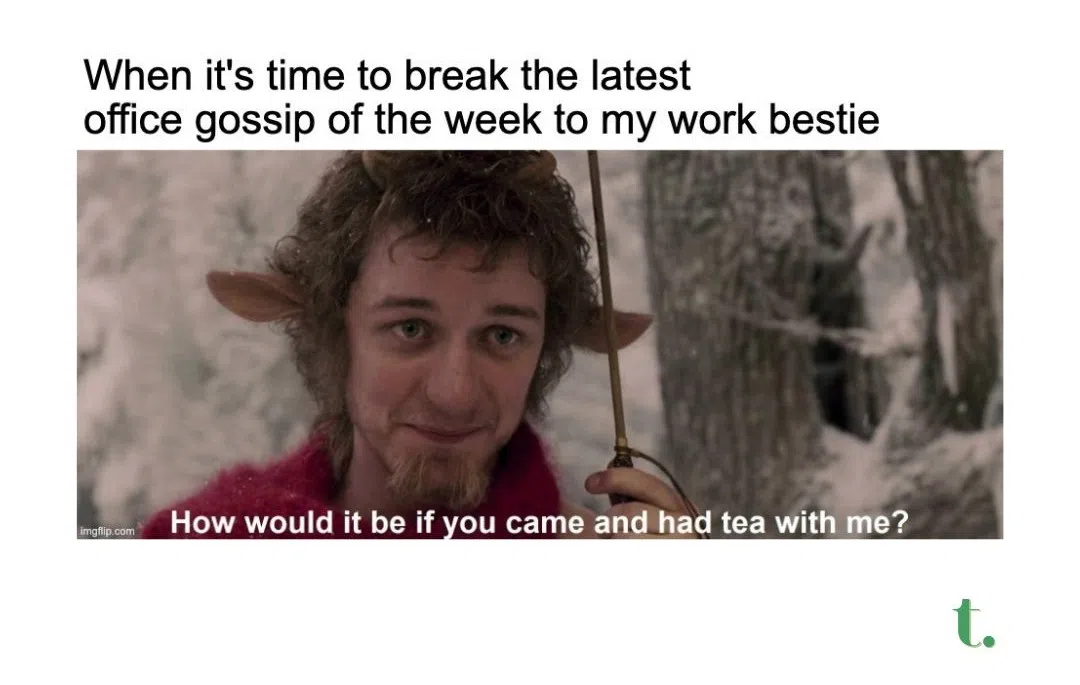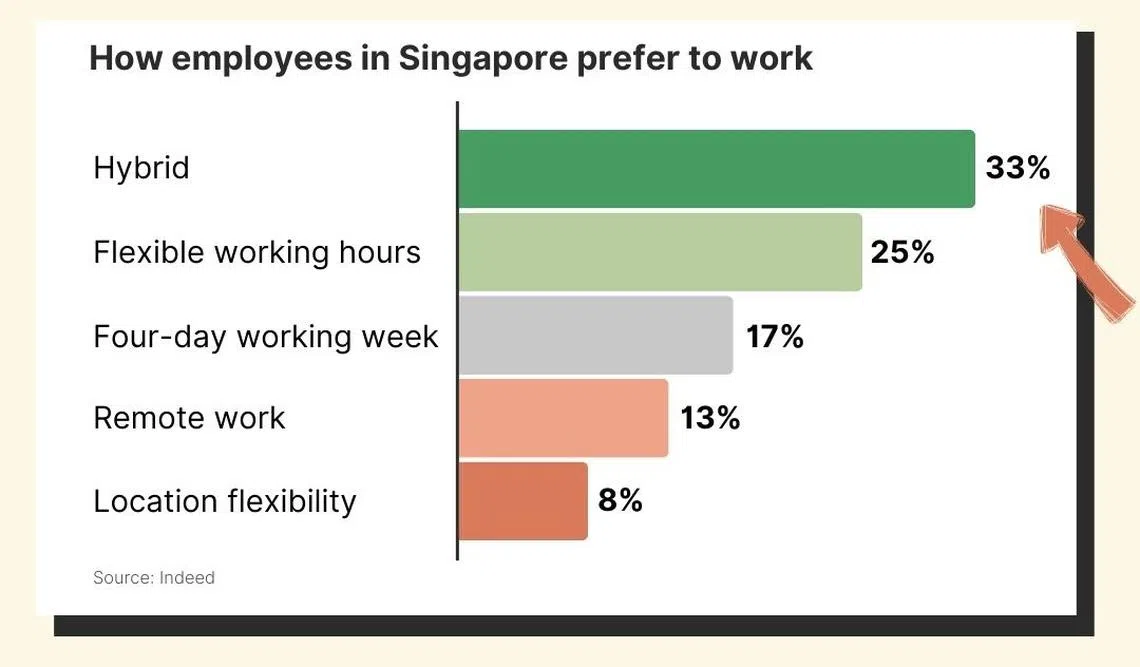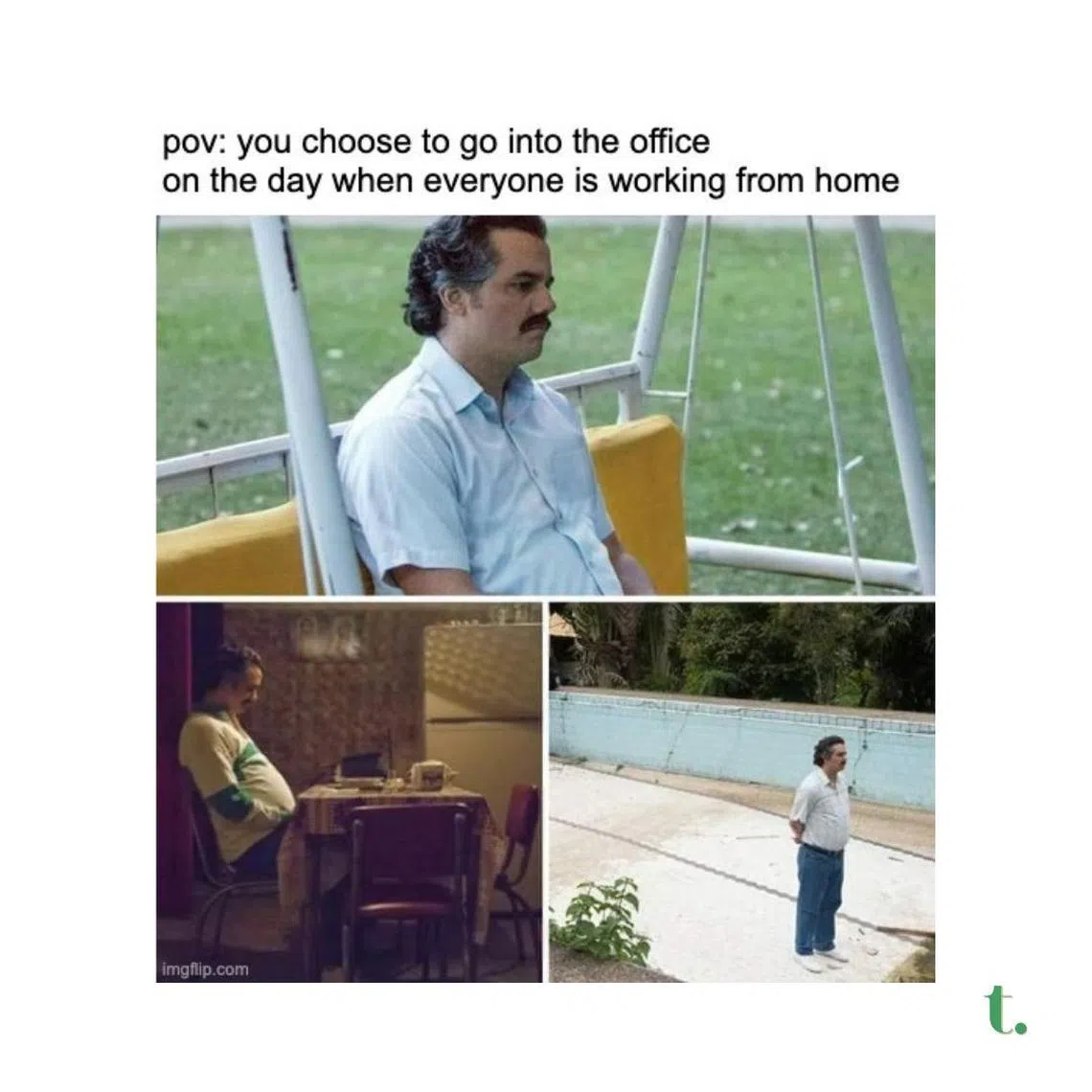💼 Can office life actually benefit younger workers?

Straight to your inbox. Money, career and life hacks to help young adults stay ahead.
- Find out more and sign up for Thrive at bt.sg/thrive
🤡 Not all fun and games
WFH may be comfortable and convenient for many, but there are downsides to this working arrangement in the long run. Adrian Choo, career coach and CEO of HR consultancy Career Agility, tells Thrive that too much WFH could hurt your career, particularly for young adults who have just started out at the workplace.
“Because you’re not at the office on most days, your colleagues and, more importantly, your bosses may not (have a good sense of) who you are or what you do,” says Choo.
He adds that being away from “water cooler conversations” and “lunchtime networking” leaves workers at a disadvantage in terms of uncovering career-advancing opportunities that can only be picked up through the grapevine.

This is not something that has gone unnoticed by Gen Zs today.
“Sometimes I work better in the office because I focus more when I see other people focusing,” shares Tony (not his real name), 26, who works at a multinational corporation in Singapore. “I also prefer discussing projects with my bosses face to face, and can see how this makes it easier for my bosses to recognise the effort I put into my work.”
Choo asserts how it does pay to invest in such “face time”. “If someone goes to office just one day more per week compared to their peers, they have increased their exposure and visibility to senior management by 20 per cent,” he says.
As much as we would like to think that doing good work is enough to get us noticed, the old adage of “out of sight, out of mind” can also ring true. The reality is that managers have many things on their plates and may not have the bandwidth to keep track of each individual’s contributions. Showing up and advocating for yourself is one way to get the recognition you deserve.
While it doesn’t mean that workers should come in all five days a week, a darker side to full remote working is that there is a high possibility that it can be outsourced overseas for cheaper. This could put many remote workers at risk, especially in this current climate of layoffs in the tech industry.
Beyond job security, there’s also the mental health aspect of WFH to consider. One shouldn’t underestimate the need for connection and community, especially since work takes up at least a third of our weekdays.
SEE ALSO
As someone who was onboarded to my first job remotely, it was an isolating experience as I felt very detached from my colleagues. I had to figure out how to navigate my growth in the company all by myself, and I didn’t know whom to turn to for help.
Tony concurs: “It’s easier to get ‘tunnel vision’ and feel down by yourself when you WFH all the time.” But in the office, there is a sense of camaraderie that is uplifting as you get to work with colleagues together towards a common goal, he adds.
As it is, workers in Singapore concur that hybrid work offers the best of both worlds and is the preferred work arrangement for employees in Singapore, according to a report by Indeed.

🙋🏻♂️ Showing up for the sake of it

For workers who face a full-time RTO policy from their employers, think carefully before you throw in the towel.
Are you still new to the role? It might not be a bad thing to show up as it helps you to better manage key stakeholders and learn from your seniors or peers. Building relationships, especially at the start, is best done in person, says Choo.
Doing this can help you build a stronger foundation and will hopefully lead to results. Once you have proven that you know what you are doing and have gained the trust of your managers, it is easier to negotiate for more flexibility in the future.
And in the case that managers still insist on WFO even though you have proven yourself to be a strong performer, then there are many more opportunities out there that you can move on to with your body of work.
But if your job skills haven’t reached that point, finding ways to make the most of office life in the meantime can be a good way to grow and fast-track your career while enjoying a sense of connection at the same time.
♟️ Make your move
Unsure of how to maximise your time in the office when you do show up? Here are some tips:
- Clear up any doubts or queries you may have about your work or performance with your boss in person. There’s nothing like an in-person check-in with your boss to settle everything that you may be unclear about once and for all. It displays pro-activeness and responsibility on your part, too!
- Organise lunch meetings or coffee chats with people you may want to learn more from at work. It’s important to be curious about your role and its broader function in the wider organisation, and there’s no better way to demonstrate that by reaching out to senior staff to learn about a particular topic or skill they may have expertise in.
- Remember to spend time with your peers at work as well. Developing good rapport with those in your peer group at work can help build a sense of community (and stave off any loneliness you may feel at work). You can learn a lot from those in your age group, even if they are from different teams.
- However, if WFO is really not your thing, strengthening your communication skills over online channels is one way to get around this. This can involve you taking the initiative to schedule regular check-ins with your boss, or meetings with other colleagues online.
- Watch how your seniors or managers carry themselves, be it in meetings or presentations. While not everything may be useful, it helps you figure out what qualities are valued in your organisation and pick up some nifty social tips that you may not get online.
- Bounce ideas with those around you. It’s much easier to iterate and improve on your ideas when you can see your colleague’s reactions. While Mural and Google Docs exist, there’s nothing quite like collaborating in person, especially if you need a quick turnaround.
- Get buy-in, especially for projects or proposals that require multiple levels of stakeholder approval. This again boils down to relationship-building, which is very much needed - especially in big corporations if you need things to move.
TL;DR
- Fully remote workers might unintentionally hurt their careers as managers might regard them as “out of sight, out of mind”
- Meeting colleagues can improve your working experience and help you feel less alone
- Instead of dwelling on the pain of a full RTO policy, think about how you can make the most of your office life
- Remember to work on active communication with your bosses and colleagues around you to maximise your experience at the workplace
Decoding Asia newsletter: your guide to navigating Asia in a new global order. Sign up here to get Decoding Asia newsletter. Delivered to your inbox. Free.
Copyright SPH Media. All rights reserved.
